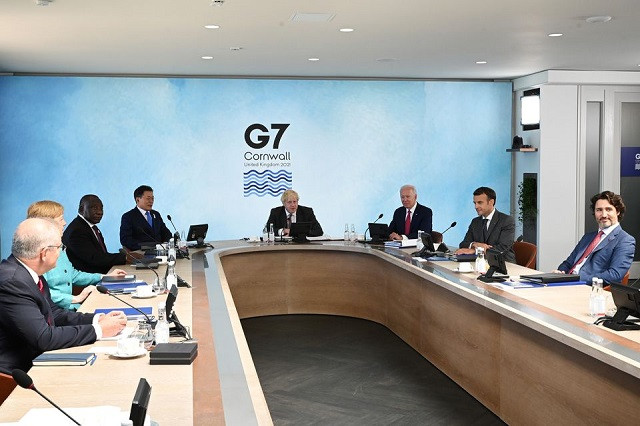# Trustworthy Artificial Intelligence: A G7 Call for Governance
Key Highlights :

As the world of technology continues to grow and evolve, leaders of the Group of Seven (G7) nations recently called for the development and adoption of technical standards to keep artificial intelligence (AI) “trustworthy.” This call comes as the European Union (EU) inches closer to passing legislation to regulate AI technology—potentially the world’s first comprehensive AI law.
At the G7 summit in Hiroshima, Japan, the leaders recognized that the approaches to achieving the common vision and goal of trustworthy AI may vary. However, they agreed that the rules for digital technologies like AI should be “in line with our shared democratic values.”
The agreement followed a warning from AI experts in March calling for a six-month pause in developing more powerful systems due to potential risks to society. This warning was prompted by OpenAI’s ChatGPT, a subset of AI technology.
The G7 leaders also discussed generative AI, which has been popularized by the ChatGPT app. They agreed that “we want AI systems to be accurate, reliable, safe and non-discriminatory, regardless of their origin.”
The US has taken a cautious approach to governing AI, with President Joe Biden saying it remains to be seen whether AI is dangerous. Sam Altman, CEO of Microsoft-backed OpenAI, told a Senate panel on Tuesday that the US should consider licensing and testing requirements for development of AI models.
Japan, this year’s chair of G7, has been even more accommodating, pledging support for public and industrial adoption of AI while monitoring its risks. Prime Minister Fumio Kishida said it is “important to properly deal with both the potentials and risks.”
The Western nations’ differing approaches to AI are in contrast to China’s restrictive policy. Its cyberspace regulator in April unveiled draft measures to align generative AI-powered services with the country’s core socialist values.
The G7 leaders agreed to create a ministerial forum dubbed the “Hiroshima AI process” to discuss issues around generative AI, such as copyrights and disinformation, by the end of this year. They also urged international organizations such as the Organisation for Economic Cooperation and Development to consider analysis on the impact of policy developments.
The US and EU are expected to exchange views on the emerging technologies at the Trade and Technology Council in Sweden on May 30-31.
As AI technology continues to rapidly develop, it is essential for governments to create and enforce regulations that will ensure the technology is used in a safe and trustworthy manner. The G7’s call for governance of AI is a step in the right direction and will hopefully lead to the establishment of international standards that will ensure the technology is used responsibly.
